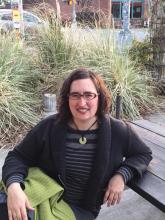On February 10, 2014 the Chapel Hill Town Council voted unanimously to pay their share of the preliminary engineering and surveying necessary to extend sewer to the historic Rogers Road Community (this would include 86 home lots). These activities are required for the extension of sewer regardless of whether the Chapel Hill Town Council moves forward with a utility district or ETJ. In addition to funding for this preliminary engineering work, the CHTC voted in favor of including funding for community outreach efforts to assist community members in learning about the preliminary engineering work and what it means to go forward with sewer hook-ups (see agenda item with link to staff memo here). This work is to be undertaken by Rogers Eubanks Neighborhood Association (RENA), the Marian Cheek Jackson Center for Saving and Making History, and Self Help in partnership, as recommended in the final report of the Historic Rogers Road Task Force (see page 18).
On March 4, 2014, the Carrboro Board of Alderpersons also voted to fund this preliminary engineering work and outreach, although they wanted more information about the nature of the outreach work and which organizations would be involved.
The Orange County Board of Commissioners followed suit on March 6th, voting to approve the preliminary engineering work, and outreach plan (without naming the partners), and to apply for Community Development Block Grant funds to help cover the cost of the sewer extension.
Representatives of the Jackson Center and RENA have since met to discuss their partnership. The follow Letter to the Editor was printed in the Chapel Hill News on March 12, 2014 in regard to partnering in the outreach efforts in the Rogers Road community:
An immediate need
We, the Rogers Eubanks Neighborhood Association (RENA) and the Marian Cheek Jackson Center, are acutely aware of the need and immediacy of a water and sewer extension project. It affects the lives of our friends and neighbors and has for forty years.
The proposed partnership between the RENA and the Jackson Center is also vital and necessary. Our approach to organizing is broad-based and comprehensive. The proposed contract provides for an extensive engagement strategy that involves over 1,000 hours of collaborative organizing, outreach, data analysis, mapping, and groundwork for continued action.
Carrboro and Chapel Hill have approved $130,000 for preliminary engineering efforts. We are excited that jurisdictions also have been supportive of community-based discussion and planning. We do not repeat past efforts or resurvey folks. This contract will enable RENA and the Jackson Center to design, cogently map, and synthesize over 40 years of work that has been done in this neighborhood. It will also allow us to inform the community of the engineering survey implications and to prudently plan for the rapid development that would occur with line installation. We hope to move forward soon with the support from all jurisdictions.
ROBERT CAMPBELL
ELIZABETH MCCAIN
THE WRITERS ARE THE PRESIDENT OF RENA AND MANAGER OF OPERATIONS OF THE JACKSON CENTER, RESPECTIVELY.
Hence, it looks as though this preliminary engineering work will go forward with unanimous support and funding from the three municipalities involved, that the outreach efforts will also be funded, and that the Jackson Center will be partnering with RENA on those efforts.
One of the next steps is for Orange County to develop their Community Development Block Grant for Infrastructure, due May 1, 2014.



Comments
Over the horizon and out of sight
Yesterday I visited the Sampson County landfill where the trash from Chapel Hill, Carrboro, and UNC is dumped. There is an African-American community much closer to this landfill than the Rogers Rd. Eubanks community is to the Orange County landfill site. Additionally, there is a much greater volume of trash on the roadsides leading to the landfill entrance than I've seen on Eubanks.
Out of Site - Out of Mind...
I guess. So by hauling our trash to another county that then hauls it to still another county who dumps it upon a community as (or more) disadvantaged than the one we were previously dumping it upon we've come a long way - to what? To proving that our words are much stronger than our actions? We all share in this travesty of social injustice.